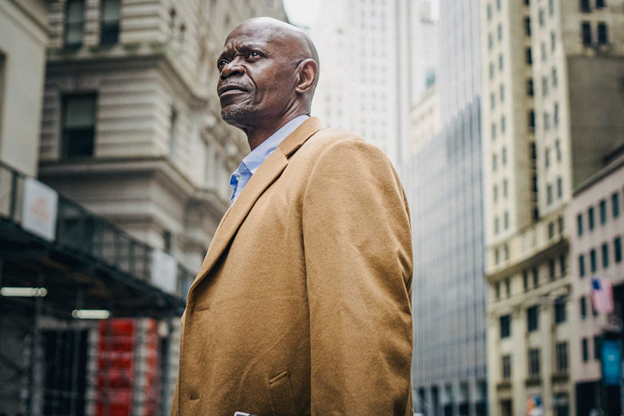Air pollution, climate change, deforestation and land degradation are chief among issues confronting Africa’s progress towards environmental sustainability. How the average African household sources energy to cook their meals remains one of the greatest challenges to unravel in order to achieve environmental sustainability in Africa. Most common source of energy in rural Africa is Firewood; tree felling for firewood is very prevalent and the forests are disappearing as the need for more firewood continues. The burning of wood fuels releases CO2, the primary greenhouse gas responsible for trapping heat in the atmosphere; wood fuels drive deforestation and habitat destruction in Africa. Deforestation leads to the loss of biodiversity, disruption of ecosystems, and increased carbon emissions as trees, which serve as natural carbon sinks are removed. Beside the environmental concern of this energy source, there are also health concerns such as respiratory issues resulting from frequent inhalation of carbon monoxide. The good news is that a social entrepreneur has been working assiduously in the last decade to provide environmentally friendly and cost-saving energy solutions for African households. The product of this social entrepreneur, The Burn Cookstove, has caught our attention in The CSR Arena
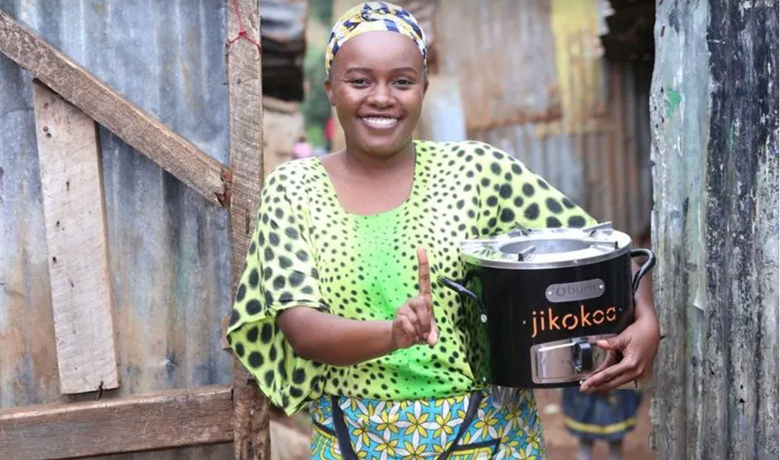
The Burn Cook Stove
The Burn story took off in 2010 with the establishment of Burn Design Lab and BURN Manufacturing Co. by Peter Scott. Motivated by the need to combat deforestation in Africa, Peter founded Burn to build affordable fuel-efficient stoves to cook meals in African homes without endangering the environment. From Charcoal appliances, Firewood & Briquette appliances to LPG appliances ( and even electric appliances), Burn portfolio of clean energy Cookstoves has gained wide acceptance in African homes. The Charcoal appliances include the Jikokoa Classic, the Jikokoaxtra and the Jikokoapro. The Jikokoa option has become East Africa’s most popular clean cookstove with over 800,000 sold since its launch in 2014. Whereas the Jikokoa Classic and Jikokoaxtra are treasured as suitable for homes of all sizes, the Jikokoapro has the ruggedness for commercial cooking and has become the most efficient commercial cookstove in Africa; it consumes 33% less charcoal than traditional stove. Jikokoapro affords users about $348 savings per annum and achieves CO2 reduction of 8.96tons to 16tons annually.
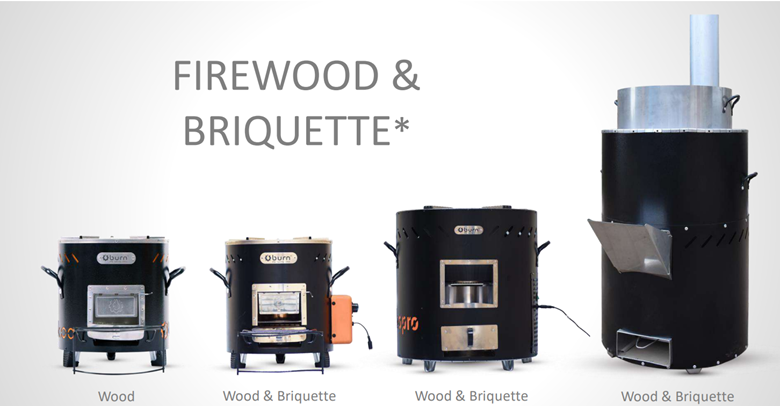
The Firewood & Briquette option strikes a balance between nature and science, bringing together the renaissance of the traditional African kitchen experience and environmental consciousness with the aid of technology. This technology creates a link between the traditional African kitchen and the modern kitchen of Africa’s new generation. The Firewood and Briquette option offers firewood only and the firewood & briquette options; all these options are smoke-free and energy-saving. The wood – only option includes the Kuniokoa which uses 71% less firewood than 3-stone fire and achieves about 81% fewer emissions than open fire. The firewood and briquette option includes the Turbo cookstove. Powered by a forced-draft Turbo, this cookstove can burn on dry or wet wood making it an all-season cookstove saving the African mother the trauma of kneeling to blow up fire from wet woods during the rainy season. Alternatively, the Turbo cookstove can also be powered by non-carbonized briquettes. The Turbopro is the commercial cooking variant of the forced -draft Turbo technology which is helping food entrepreneurs cut energy cost and save about $840 per annum. The Turbo cookstoves can also be powered with just 1.4w and 10w of electric power, respectively.
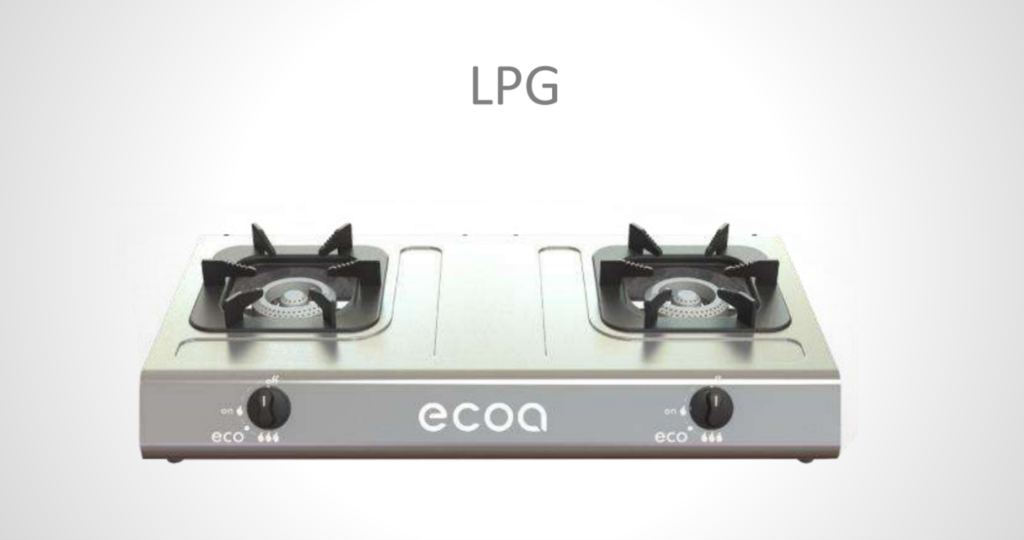
Ecoa stands out as Burn’s latest addition to her clean cooking solution, using Liquified Petroleum Gas (LPG). Launched in 2021, the Ecoa is custom-designed with adjustable air-gas ratio to maximize fuel efficiency. Burn has further diversified the Ecoa offering to include the Ecoa Electric Pressure Cooker which is 78% cheaper than charcoal and 5 times cheaper than LPG. This electric-powered Pressure Cooker consumes approximately o.3kwh per meal thereby saving energy cost while delivering clean cooking solution.
Burn’s Social Impact
The Burn cooking solution has over the years delivered direct positive social impact African homes and the society at large, starting from its host communities in Kenya to the rest of the 10 countries where it currently has operating presence. Burn has also delivered indirect positive social impact to the wider African society and the world at large through her various products. In clear statistics, with 3,681,083 units of cookstoves sold, Burn has saved 14,499,557tons of CO₂ from the global ecosystem; saved 8,150,397 tons of wood that would have been lost in traditional open fire cooking; impacted 202,457,947 lives; created 2500 jobs and achieved $594,681,817 in household savings. The health impacts of Burn’s cookstoves can be better appreciated when we consider the health hazards associated with the use of open fires for cooking: the prolonged exposure to the indoor air pollutants generated from open fire which includes, fine particulate matter, carbon monoxide (CO), and volatile organic compounds (VOCs) can lead to respiratory and cardiovascular diseases, especially for women and children who are mostly exposed to cooking fires.
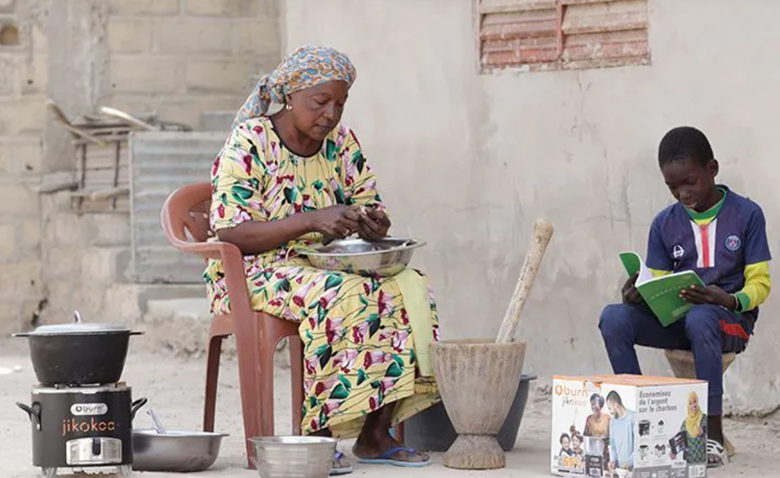
Experts advise that transitioning from open fire cooking to cleaner and more efficient cooking technologies, like those offered by Burn, can help reduce the impact of climate change on the global ecosystem by reducing emissions, improving air quality and promoting energy efficiency. Socioeconomically, Burn’s clean energy cooking solutions help reduce cost of living in Africa by cutting down on households’ energy cost thereby creating more disposable income.
Burn and the SDGs
As an agent of sustainable development in Africa, Burn believes its operations is helping Africa to address 10 sustainable development goals as stated below:
- SDG 1: The use of Jikokoa contributes to significant savings of time and money (on average $96/year per family) that can be utilized for other needs like education, healthcare, and income-generating activities.
- SDG 2: Time savings can be used for other income-generating activities or for growing foods (like maize, potatoes, beans, etc.).
- SDG 3: Jikokoa contributes to the reduction of indoor air pollution (smoke, particulate matter, and carbon monoxide), resulting in a decrease in respiratory diseases, headaches, and itchy eyes.
- SDG 4: Jikokoa cooks faster than traditional stoves and uses less fuel, enabling children, particularly girls, to dedicate more time to education/school, instead of cooking.
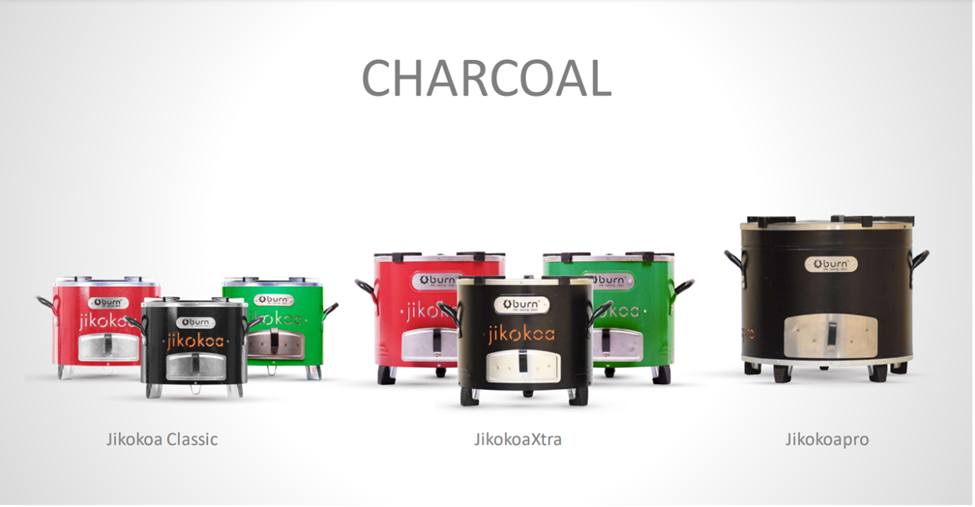
- SDG 5: Women are mostly responsible for cooking and procuring fuel. Using a more efficient cookstove allows them to spend their time on more productive tasks as well as education.
- SDG 7: More than 800,000+ households benefit from BURN’s super fuel-efficient biomass appliances in East Africa.
- SDG 8: BURN’s local manufacturing facility in Ruiru, Kenya employs more than 400 people. In addition, its operations have created 200+ jobs for sales, marketing, distribution, and monitoring staff.
- SDG 11: Jikokoa allows for efficient, clean and smokeless cooking, contributing to improved kitchen and living conditions in cities and communities.
- SDG 13: One unit of Jikokoa reduces greenhouse gas emissions by up to 4.46 tons of CO2 per annum and therefore helps to combat climate change.
- SDG 15: One unit of Jikokoa saves about 0.56 kg charcoal/day, translating into 204 kg charcoal savings per year. Charcoal production is a major driver of deforestation. Hence, Jikokoa helps to preserve forests and biodiversity.
We in The CSR Arena recognize the Burn Cleaning Energy Cooking solutions as products with social impact.
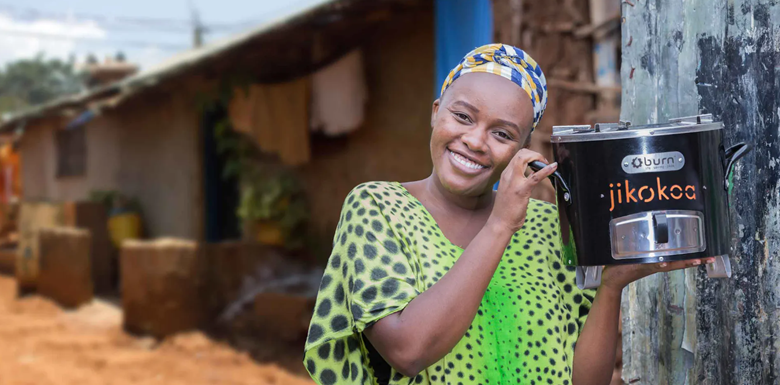

The CSR Arena is a CSR advocacy and sustainability-reporting-analysis champion. We encourage and celebrate effective CSR and positive social impact by responsible corporate citizens; we celebrate international best practices in sustainability reporting across different economic divides. Our goal is to realize the dream of development scholars that, ‘corporates, more than governments, would bring about the much needed sustainable development across the globe. We partner with FBOs, NGOs, CBOs, governments and corporates to spread the message of sustainable development and corporate sustainability. Our platforms bear tales of good corporate citizenship – grab the microphone that you may be heard. Contact: news@thecsrarena.com


